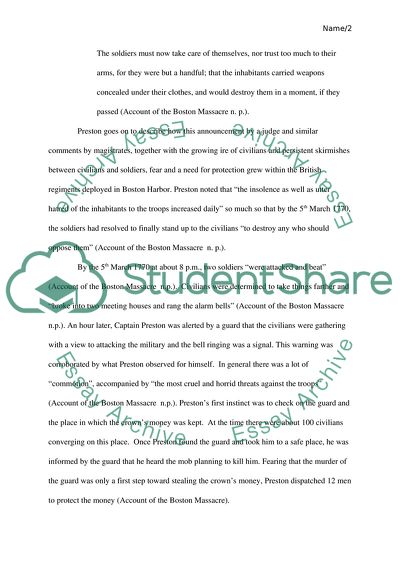Cite this document
(The Boston Massacre from Two Perspectives Essay Example | Topics and Well Written Essays - 2000 words - 1, n.d.)
The Boston Massacre from Two Perspectives Essay Example | Topics and Well Written Essays - 2000 words - 1. https://studentshare.org/history/1793926-for-this-paper-you-will-compare-and-analyze-different-primary-documents-of-the-same-topic-or-historical-era
The Boston Massacre from Two Perspectives Essay Example | Topics and Well Written Essays - 2000 words - 1. https://studentshare.org/history/1793926-for-this-paper-you-will-compare-and-analyze-different-primary-documents-of-the-same-topic-or-historical-era
(The Boston Massacre from Two Perspectives Essay Example | Topics and Well Written Essays - 2000 Words - 1)
The Boston Massacre from Two Perspectives Essay Example | Topics and Well Written Essays - 2000 Words - 1. https://studentshare.org/history/1793926-for-this-paper-you-will-compare-and-analyze-different-primary-documents-of-the-same-topic-or-historical-era.
The Boston Massacre from Two Perspectives Essay Example | Topics and Well Written Essays - 2000 Words - 1. https://studentshare.org/history/1793926-for-this-paper-you-will-compare-and-analyze-different-primary-documents-of-the-same-topic-or-historical-era.
“The Boston Massacre from Two Perspectives Essay Example | Topics and Well Written Essays - 2000 Words - 1”. https://studentshare.org/history/1793926-for-this-paper-you-will-compare-and-analyze-different-primary-documents-of-the-same-topic-or-historical-era.


